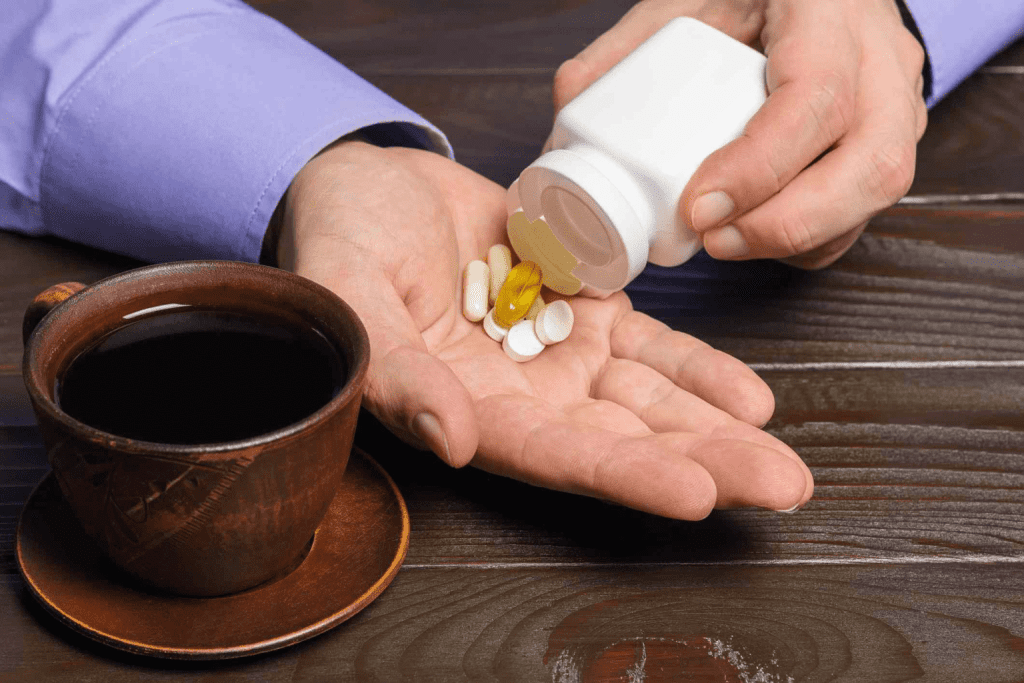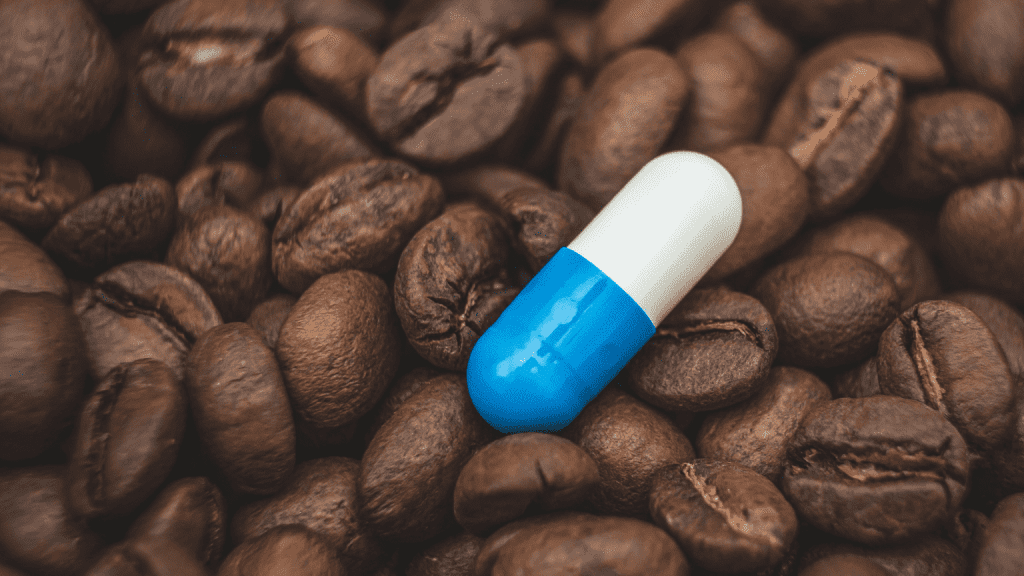For many, coffee is more than a morning ritual—it’s an essential boost that starts the day. However, this beloved beverage can have hidden risks, especially when combined with certain medications. While coffee offers numerous benefits, it can also interfere with the way some drugs work in your body, potentially leading to dangerous side effects or reduced effectiveness. Here, we break down ten medications that you should never mix with coffee and explain why this interaction can be risky.
How Coffee Affects Your Body and Medication Metabolism

Coffee’s main active ingredient, caffeine, is a stimulant that affects the central nervous system. It heightens alertness, improves mood, and can even boost mental performance. But caffeine also impacts how certain drugs are absorbed and metabolized in the body. It can speed up or slow down the breakdown of medications, which means it can either enhance or reduce their effects. This interaction can lead to unintended consequences, making it essential to know which medications don’t pair well with your cup of coffee.
The Dangers of Mixing Coffee with Certain Medications
Mixing coffee with certain medications can lead to health complications, from heightened side effects to reduced medication efficacy. In extreme cases, the interaction can even lead to severe reactions, making it crucial to understand these risks and consult healthcare professionals if you have concerns.
Let’s explore the specific medications you should be cautious about when it comes to coffee.
1. Antidepressants
Certain antidepressants, particularly monoamine oxidase inhibitors (MAOIs), do not mix well with caffeine. The combination can increase blood pressure and heart rate, which may be dangerous for individuals with cardiovascular issues. Since MAOIs affect neurotransmitters in the brain, adding caffeine to the mix can lead to overstimulation. If you’re on antidepressants, talk to your doctor about safe caffeine consumption.
2. Antipsychotics
Caffeine can influence the metabolism of antipsychotic medications, reducing their effectiveness. By speeding up the breakdown of these drugs, caffeine may lower their therapeutic benefits, which could impact treatment for those relying on antipsychotic medications for mental health. It’s best to limit coffee intake and consult your doctor for guidance.
3. Blood Thinners
For those taking blood thinners, such as warfarin, mixing with caffeine can be risky. Caffeine may enhance the effects of these medications, increasing the risk of bleeding. Blood thinners are prescribed to prevent clots, and even a minor increase in their potency could result in health complications. Always discuss your coffee consumption with your healthcare provider if you’re on blood thinners.
4. Thyroid Medications
If you take thyroid medications like levothyroxine, be cautious with your coffee intake. Caffeine can interfere with the absorption of these drugs, potentially making them less effective. To ensure that your thyroid medication works as intended, it’s recommended to wait at least 30 to 60 minutes after taking the medication before drinking coffee.
5. Antibiotics
Certain antibiotics, like ciprofloxacin, interact poorly with caffeine. This combination can amplify caffeine’s side effects, causing jitteriness and insomnia, and may reduce the effectiveness of the antibiotic. Always consult your healthcare provider about coffee consumption while on antibiotics, as some medications require a caffeine-free period.
6. Osteoporosis Medications

Coffee can hinder the absorption of osteoporosis medications, such as bisphosphonates. These medications are crucial for bone health, and impaired absorption can reduce their effectiveness. To maximize their benefit, take these medications with plain water and avoid drinking coffee for at least 30 minutes afterward.
7. Heart Medications
Certain heart medications, like beta-blockers, are negatively impacted by caffeine. Beta-blockers work by slowing down the heart rate and lowering blood pressure. However, caffeine can counteract these effects, leading to elevated heart rates and blood pressure spikes. If you’re on heart medications, consult with your cardiologist about managing your caffeine intake.
8. Antihistamines
Combining antihistamines with caffeine can amplify sedative effects, leading to increased drowsiness and impaired coordination. Since antihistamines are often used for allergies and can already cause drowsiness, adding caffeine can make the effects stronger or more unpredictable. It’s wise to monitor how you feel if you consume coffee while taking antihistamines and avoid driving or operating heavy machinery.
9. Anti-Anxiety Medications

Caffeine can counteract the calming effects of anti-anxiety medications, particularly benzodiazepines. Since caffeine is a stimulant, it can increase anxiety, which directly opposes the purpose of these medications. For individuals managing anxiety, limiting caffeine intake can help ensure that their medications work as intended, reducing the likelihood of jitteriness or panic.
10. Pain Relievers
Certain pain relievers, like acetaminophen or ibuprofen, are sometimes paired with caffeine to enhance their pain-relieving effects. However, excessive coffee intake can increase side effects like stomach irritation and a rapid heartbeat. Always follow the recommended dosage on your pain reliever, and be mindful of additional caffeine sources if you’re using these medications regularly.
Best Practices for Safe Coffee Consumption with Medications
To minimize the risk of interactions, it’s advisable to follow a few simple guidelines for coffee and medication consumption:
- Wait Before Drinking Coffee: After taking your medication, wait at least 30-60 minutes before consuming coffee to avoid interference with drug absorption.
- Follow Specific Medication Instructions: Always check the label or talk to your pharmacist about specific instructions regarding coffee with your medication.
- Consult Your Healthcare Provider: If you’re uncertain, don’t hesitate to ask your doctor or pharmacist about how coffee might affect your medication. They can provide tailored advice for your needs.
Conclusion: Be Mindful of Coffee’s Impact on Medication
While coffee is a beloved beverage, it’s essential to recognize its potential interactions with certain medications. By staying informed and consulting with healthcare professionals, you can enjoy your coffee without compromising your medication’s effectiveness or risking adverse effects. So, the next time you reach for a cup of coffee, remember to consider how it might interact with your medication. A little caution can go a long way in maintaining your health and well-being


